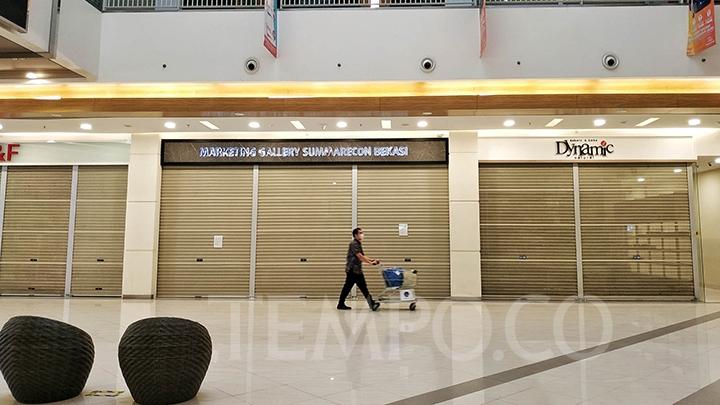
TEMPO.CO, Jakarta - After a month of the coronavirus disease 2019, or COVID-19, pandemic bringing everything to a halt, Indonesia must now face a second problem: a sharp increase in unemployment.
THE government must act quickly to support the livelihoods of millions of people who have suddenly lost their jobs. The wrong decision has the potential to add to the social crisis at a time when nobody knows when this pandemic will come to an end.
This corona pandemic has afflicted most of the globe, including Indonesia. Most economic sectors have ground to a halt. The wheels of industry have stopped turning. In the blink of an eye, many companies have seen their incomes disappear. Some of them have gone out of business – meaning all their employees have lost their jobs. Others have laid off some of their workforces. These difficult choices taken by companies’ management are bound to increase the poverty rate in Indonesia.
As of Wednesday, April 8, the number of people out of work or laid off was 1.2 million, from 74,430 companies. Of this total, 1.01 million people were workers in the formal sector. They worked in 39,977 companies. The remainder were from the informal sector, who lost their jobs from 31,453 companies. It is almost certain that these numbers will rise, even more so if the pandemic does not end soon.
The business world still faces the prospect of serious problems for many months after the pandemic ends. Therefore, the seriousness of the government in mobilizing all its resources to contain the spread of the virus is crucial. Hesitant decision-making – as was seen in the uncertainty over whether the people of Jakarta would be allowed to return to their hometowns for the annual mudik Idul Fitri pilgrimage – must not happen again. The more uncertainty in government decisions, the longer this country will take to recover from the pandemic. This in turn will waste time and distract businesspeople as well as impair their ability to revive their companies.
So far, the government has not implemented the right policies to support the newly unemployed. When millions of people lost their jobs, President Joko Widodo responded by accelerating the rollout of the pre-employment card – a program for job seekers that had been promised during last year’s presidential election campaign. This Rp20 trillion-program is not appropriate for this problem because part of it is in the form of paying training costs. Cardholders can use the deposit on their cards to pay for training that they choose.
The pre-employment cards were designed for people of at least 18 years of age who are looking for work, employees in the informal sector as well as people with micro or small-scale businesses. The budget for this campaign was Rp10 trillion. After the pandemic caused companies to collapse, the program was expanded and the funding doubled. This increased funding is aimed at newly unemployed. Every cardholder will now receive Rp3.55 million, comprising Rp1 million in training costs, a Rp600,000 incentive for four months and three lots of survey funding at Rp50,000. The government has budgeted for 5.6 million people to receive these cards.
The incentive for covering training costs is inadequate for people who have just lost their jobs. Far more important for them is cash assistance to replace the income that they have suddenly lost. In short, cash in hand can be spent at the market. For comparison, the governments in a number of countries such as the United States, Singapore and Hong Kong have handed out cash to its citizens who have been affected by the Covid-19 pandemic.
It is true that it is no easy matter to ensure the assistance reaches the right people. There have long been problems with the accuracy of our demographic data. Efforts to put this right have been waylaid by corrupt officials, as happened when the Susilo Bambang Yudhoyono administration tried to introduce electronic ID (e-KTP) cards. However, this must not become an excuse to not provide aid to people who suddenly find themselves impoverished. At a time of crisis, there are ways to overcome bureaucratic obstacles in the payment of assistance.
The Jokowi administration should also be willing to take money away from ambitious pet projects, such as the plan to move the capital, to cover efforts to help the people. Without a clear social security program, the millions of newly unemployed people could result in a “second crisis” for this country: social unrest. None of us want that to happen.
Read the Complete Story in this Week's Edition of Tempo English Magazine























